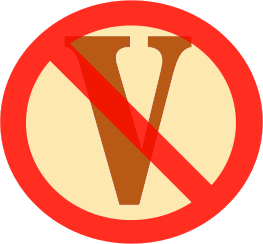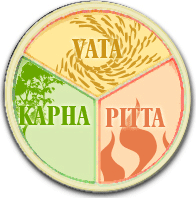PERIPHERAL NERVOUS SYSTEM HEALTH REMEDIES

Categories in Mind Stress SleepTension & BreathStressSleep PatternsEnergy-VitalityThoughts & ComprehensionMood & EmotionsCommunity, Spiritual LifeAddictions and HabitsCentral Nervous SystemPeripheral Nervous SystemOverviewDon't know your body type? Take our free Dosha quiz!
TAKE THE QUIZ
18 likes  SAVE SYMPTOM SAVE SYMPTOMTremors can result from deficiency, blood chemistry imbalances, stimulants, cold, and nerve disorders including: Underweight Imbalanced electrolytes Toxins in the blood High blood sugar Caffeine The... 23 likes  SAVE SYMPTOM SAVE SYMPTOMA trembling tongue could indicate irritated nerves. Neurons are very sensitive. In effect, they are a canary in the coal mine for imbalanced blood chemistry. Often, toxins in the blood irritate these sensitive neurons, causing a loss of fine motor...      (5.00 out of 5 stars) 1 rating, 76 likes (5.00 out of 5 stars) 1 rating, 76 likes SAVE SYMPTOM SAVE SYMPTOMAcute ringing in the ears is generally caused by toxins stimulating the nervous system (aggravating udana vayu) - a sign of aggravated doshas. It may also be caused by hypoxia. What is the pitch of the ringing in the ears? Low pitch is... 49 likes  SAVE SYMPTOM SAVE SYMPTOMHeart palpitations are defined as undue awareness of one's heartbeat. If you are sitting in the car or walking down the street, and suddenly feel your heart beating in your chest, you are experiencing heart palpitations. Your heart may feel fast,... 22 likes  SAVE SYMPTOM SAVE SYMPTOMNormally, the intestines contract in a wave-like motion called peristalsis, propelling the food or fecal matter smoothly through the intestinal tract. Sometimes, the intestines contract in an irregular way leading to colicky pain and cramping. This...      (5.00 out of 5 stars) 1 rating, 45 likes (5.00 out of 5 stars) 1 rating, 45 likes SAVE SYMPTOM SAVE SYMPTOMCramping generally comes from poor circulation, toxicity, or imbalance in electrolytes, such as magnesium or amino acids such as taurine. Cholesterol medication can cause cramping as well. 155 likes  SAVE SYMPTOM SAVE SYMPTOMNerves and muscles, which function similarly, are highly sensitivity to changes in blood chemistry. These tissues are irritated by toxins, often arising from fermentation in the digestive tract, or other pathogenic factors including... 14 likes  SAVE SYMPTOM SAVE SYMPTOMFeeling pain more than other people, or hyperalgesia, is a condition in which there is increased sensitivity to painful stimuli. Pain is detected by sensory nerves. If you feel pain more than others, the nervous system is likely agitated or on high... 9 likes  SAVE SYMPTOM SAVE SYMPTOMFeeling pain less than other people, or hypoalgesia, is a condition in which there is decreased sensitivity to painful stimuli. Hypoalgesia is a potentially dangerous condition as there may be a reduced or delayed response in processing painful... 77 likes  SAVE SYMPTOM SAVE SYMPTOMThe lower back is a fascinating and intricate part of the body that is home to the colon, intestines, uterus, urinary tract, prostate, kidney and spine. Pain in any one of these areas can masquerade as a back ache. Back Pain from...      (5.00 out of 5 stars) 2 ratings, 29 likes (5.00 out of 5 stars) 2 ratings, 29 likes SAVE SYMPTOM SAVE SYMPTOMSciatica is a sign of toxicity in Ayurveda, usually from stagnant bowels. A tight IT band may also indicate poor posture. 10 likes  SAVE SYMPTOM SAVE SYMPTOMNerve damage results in chronic pain, loss of sensation, or loss of function. Causes include Metabolic disorders / diabetes Infection Toxins - Heavy metals, pesticides, etc. Chemotherapy Trauma / Repetitive motion... MIND STRESS SLEEP TIPS DISCLAIMER: The pathogenesis of each person's condition is unique, and so the diet must be fit to the individual and the unique root causes of the condition in your body. The information on this page is for educational purposes only and should not be used to treat a medical condition. It is not a substitute for medical care. Please check with your doctor before making any changes to your health and wellness routine. HOW AYURVEDA WORKSARE YOU WONDERING HOW AYURVEDA CAN HELP YOU?WHY IS AYURVEDA THE RIGHT SOLUTION?Ayurveda strengthens the body while opposing disorders. It takes a holistic, systemic approach that looks at the whole body. Ayurveda shows how to interpret signs and symptoms of imbalance, and how to address them using diet, lifestyle adjustments, and herbs. It shows a person how to optimize their health on a continual basis. You can't take the doctor home with you, but you can take Ayurveda home with you. Ayurveda is the most advanced and easy to use home system for self healing.HOW DOES AYURVEDA WORK?Ayurveda starts by identifying your body type, which identifies certain tendencies in your body to get sick (as well as identifying your strengths). It uses body type to determine the likely root causes of your disorders. Next, Ayurveda analyzes the nature of your disorder. It fits all your signs and symptoms into a pattern, expressed as a combination of biocharaceristics (gunas). For example, you may have a heat disorder, a cold disorder, or an oily disorder, etc. This simple categorical approach shows you how to correct systemic imbalances and strengthen your body as a whole.On Joyful Belly, we've created an extensive categorization of food so you can easily match food to your imbalanced biocharacteristics. By eating an optimal diet that balances your biocharacteristics, your whole body is strengthened and the conditions that created the disorder are removed. Once the root causes of the disease are removed, the disease lessens in strength or disappears altogether. Additional remedies - such as herbs and lifestyle practices - focused on the specific disorder, can greatly enhance your healing. GET STARTEDTo get started on your Ayurvedic journey, we first recommend that your find your body type by taking our free quiz. In Ayurveda, every solution is based on your unique body type, so by taking this quiz, you’ll get the best results. |
Join Joyful Belly.
Want our top Ayurvedic recipes and health tips?Subscribe to our free newsletter!











